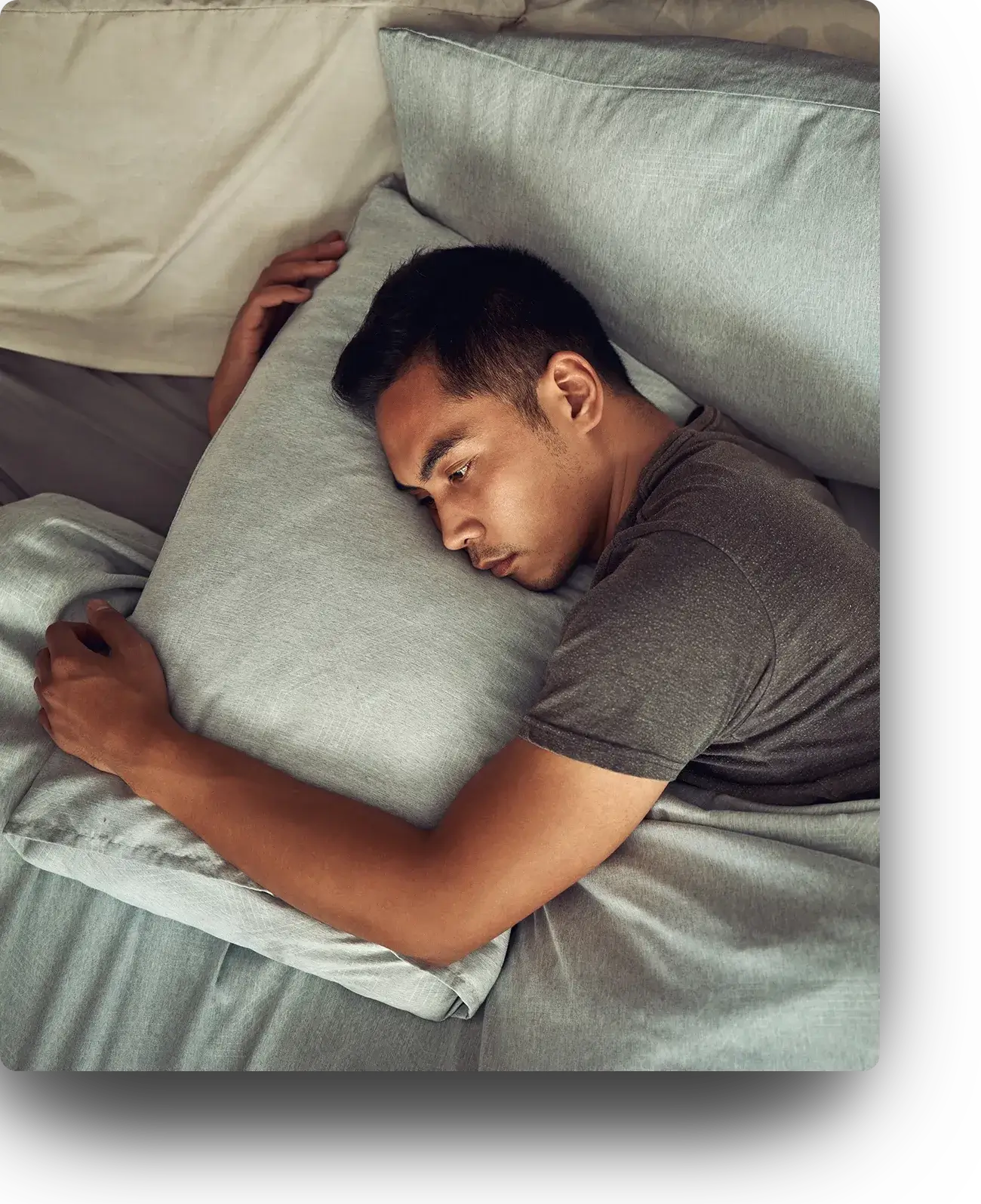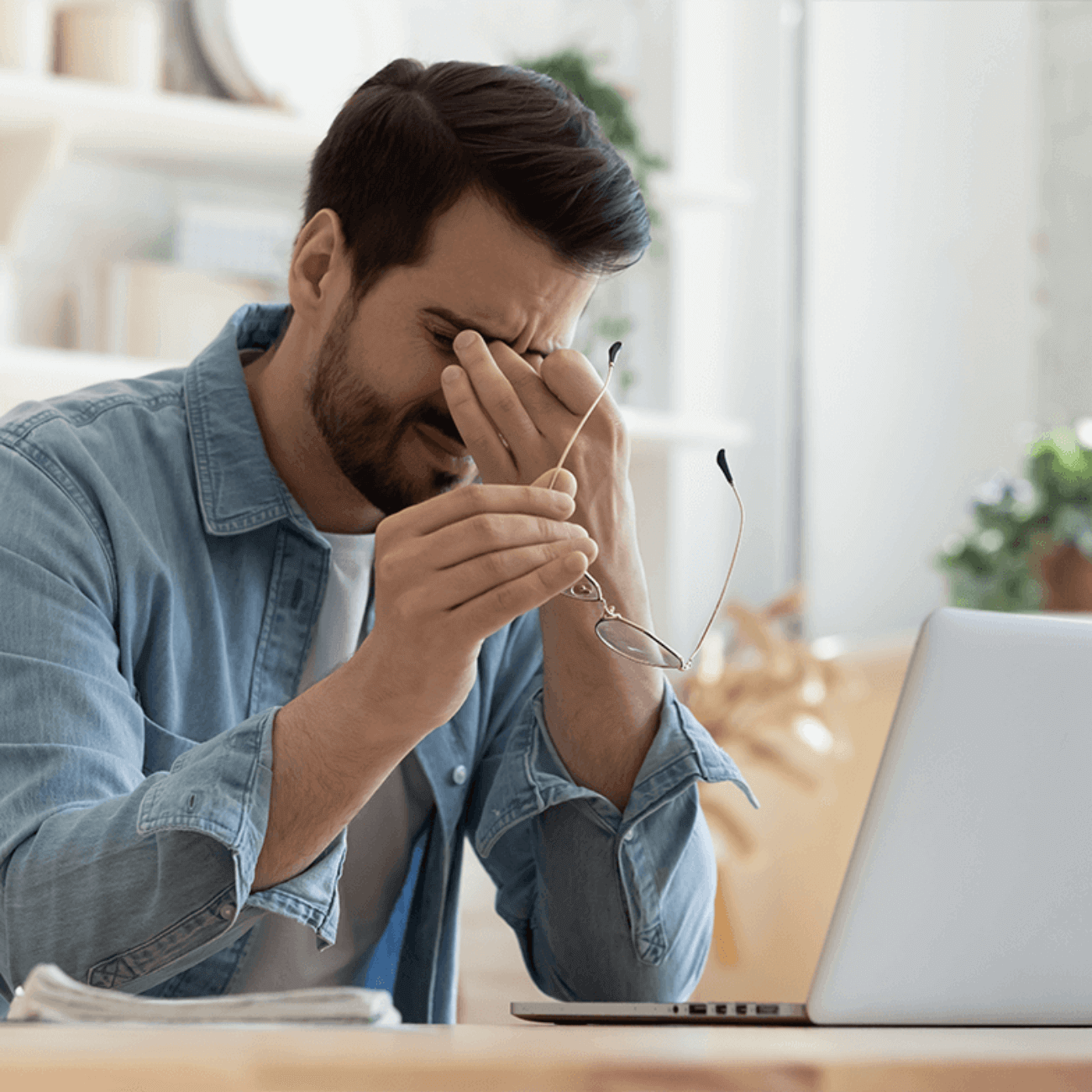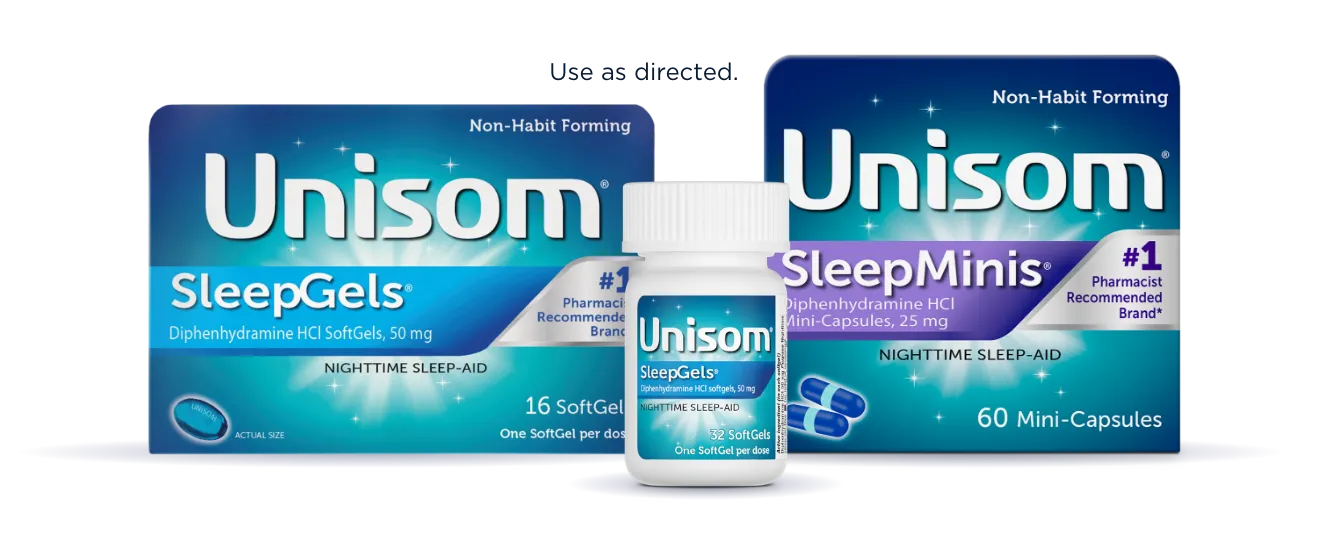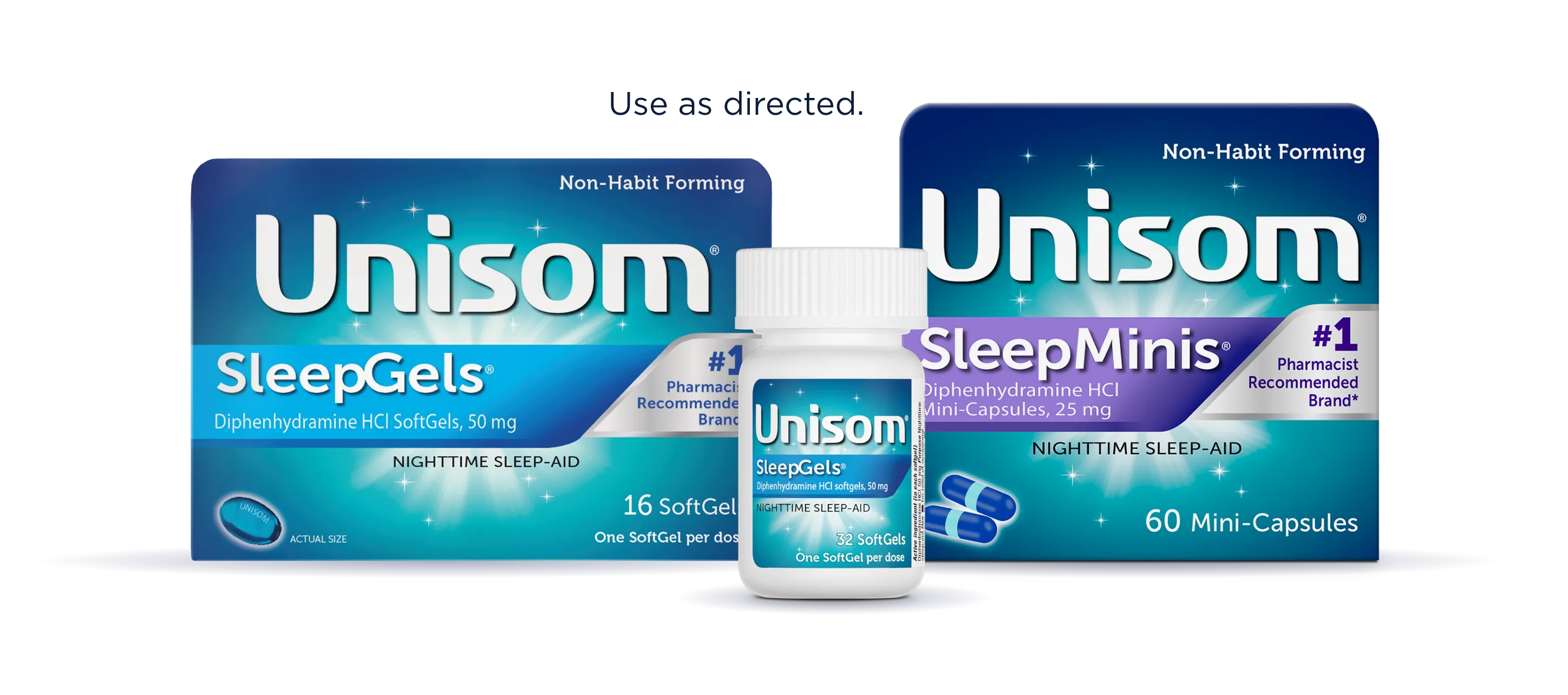There are few things more frustrating than getting into bed after a long, tiring day only to find that you can’t fall asleep. We’ve all been there, but, fortunately, the occasional sleepless night is not usually a cause for concern. Difficulty falling asleep from time to time can simply be the result of stress or lifestyle factors like an evening cappuccino with friends or an extra long nap in the afternoon. However, if sleep evades you on a regular basis or sleeping problems begin to impact your daytime performance, it could point to a chronic sleep issue.
Insomnia is the most commonly experienced chronic sleep concern, affecting up to one-third of adults at a given time, according to John Hopkins School of Medicine.1 But if you find yourself among the millions of American adults occasionally struggling to hit the hay, it’s helpful to know that you may be able to overcome the hurdle by understanding the underlying causes, and seeking professional help when needed. Keep reading to discover some frequent causes of sleep difficulties, as well as a few effective tips to help you drift off to sleep faster and enjoy a restful, productive night.
[Editor's Note: Unisom is only intended to help temporary sleep issues. If you suspect you may have insomnia, or experience difficulty falling asleep or staying asleep for more than two consecutive weeks, consult your healthcare provider. Ongoing sleep issues may be indicative of an underlying condition.]
What Is Insomnia?
Although the exact definition varies slightly among experts, insomnia is generally characterized by a persistent inability to fall asleep and stay asleep, usually accompanied by daytime sleepiness and impairment. This ongoing lack of quality sleep can have far-reaching effects on a person’s overall health over time, from decreased work performance to greater risk of injury or accidents. It can also increase a person’s likelihood of developing depression, diabetes, hypertension, obesity, and many other health concerns.
Short-Term Sleep Issues vs Chronic Insomnia
Difficulty sleeping can be broken down into two types: short-term (acute) sleep issues and chronic insomnia. Short-term sleep issues are often a result of stress, and can last anywhere from a few days up to three months. On the other hand, chronic insomnia is a longer-standing issue that’s experienced three times a week or more and lasts for at least three months—hence why it should always be assessed by a qualified professional.
9 Reasons Why You Can’t Fall Asleep
The cause of short-term sleep issues can vary greatly from one person to the next, since they’re usually driven by at least one or more underlying variables. So, if you want to drift peacefully off to sleep, it’s recommended to first focus on finding the source of your sleep troubles. Below are some common causes of difficulty sleeping to help you pinpoint what might be keeping you awake.
1. A disruptive sleeping environment
Problems within your sleeping environment can pose some serious challenges when it comes time to hit the sack. These sleep disruptors often include bright lights, an uncomfortable mattress, or ambient noise. A restless sleeping partner, noisy pet, or room that is too cold or too warm may also be to blame. While not everything in your sleeping space is always within your control, it’s helpful to scan the room to see what potential impediments to sleep might be at play and adjust what you can.
2. Too much stress
Difficulty sleeping is more common in people experiencing high levels of stress. Although stress is a normal (and largely unavoidable) part of life, it’s important to manage it in healthy ways so that it doesn’t affect your ability to drift off to sleep at night. A relaxing nighttime routine is one strategy to help you wind down at the end of the day. Try transforming your bedroom into a serene sanctuary, with soothing music, dim lighting, and an evening meditation.
3. Unhealthy lifestyle habits
Unhealthy lifestyle habits can also impact sleep, such as staying up too late or consuming caffeine, alcohol, large meals, or sugary foods too close to bedtime. Irregular sleep schedules may also interfere with catching some Zzzs, especially for night shift workers who often need to sleep during the day. Focusing on healthy lifestyle habits, such as a regular sleep schedule and plenty of exercise, has been shown to be an effective way to naturally improve sleep quality.
4. Mental health challenges
Individuals experiencing mental health challenges, such as anxiety and depression, are also more likely to struggle with falling (and staying) asleep. However, since the dynamics between mental health and sleep difficulties can be complex, it’s crucial to speak with your healthcare provider if you suspect a mental health concern may be causing your sleep problems (or vice versa). They’ll be able to provide you with the best individualized treatment options.
5. Your age
During certain stages of life, trouble falling asleep and getting back to sleep can become more common. Sleep issues are more prevalent in adults over the age of 60 due to changes caused by the natural aging process. Older folks may also find it increasingly difficult to fall asleep as a result of age-related medical conditions or sleep-disrupting medications.
In addition, a shift in circadian rhythm during puberty (known as "sleep phase delay") can cause sleep problems in many teenagers as well. This internal clock disruption is often also influenced by busy social lives, hectic schedules, and the pressure to perform at school.
6. Pregnancy or other hormonal changes
Research shows that women have a 40% higher likelihood of experiencing sleep issues than men.3 Factors that may cause trouble sleeping or insomnia in women include hormonal fluctuations during pregnancy, as well as menopause, premenstrual syndrome (PMS), or other female-specific concerns. When pregnant, it may become more difficult to find a comfortable sleeping position, therefore making it more difficult for some expecting mothers to doze off at night.
7. Physical illness or an underlying condition
Difficulty sleeping may stem from underlying health conditions or illnesses that can impact sleep quality. These can include anything from neurological issues, like Alzheimer’s or Parkinson’s disease, to chronic pain, arthritis, gastrointestinal disorders, and more. Each specific health condition can impact how frequent and severe a person’s sleeping problems may be, so it’s best to discuss any concerns you may have with your healthcare provider.
8. Certain sleep disorders
Sleep disorders impact the lives of up to 70 million Americans each year, according to the Cleveland Clinic.4 And although something like insomnia is technically considered a sleep disorder in itself, there are other sleep disorders that may trigger or worsen it—such as restless leg syndrome or sleep apnea.
9. Some medications
Certain medications and drugs can also influence sleep quality. Trouble sleeping can sometimes be an unwelcome side effect of prescription medications, such as antidepressants and medications used to treat high blood pressure or ADHD, as well as over-the-counter allergy and daytime cold products. Weight loss or performance supplements containing stimulants like caffeine may also impact a person’s ability to drift off to sleep. Always talk to your healthcare provider if you’re concerned any medication you’re taking is interfering with your sleep.
When To See Your Doctor
Getting enough quality sleep is critically important to your health and wellness, from your mood to your daily performance and physical health. If your inability to fall asleep is disrupting your daily life, or has lasted longer than three months, it’s best to contact your healthcare provider for help.
Some potential signs that may be of concern include persistent excessive daytime sleepiness, trouble focusing, irritability, poor mood, decreased daily performance, or loud snoring that results in choking or gasping sounds. Your doctor can help identify underlying causes and offer effective options customized to fit your needs.
Rest Assured
Sometimes, when you can’t fall asleep, it’s nice to know that a bit of extra support is available when you need it. That’s why Unisom® is here for you, as the #1 pharmacist- and doctor-recommended OTC sleep-aid brand. You can count on us to help you fall asleep, stay asleep longer, and wake up feeling refreshed†, with a range of options that include the below products.
Unisom® SleepGels® contain the histamine blocker diphenhydramine HCl. Blocking histamine production can help you fall asleep faster and stay asleep.
Unisom® SleepTabs® contain doxylamine succinate, which is a clinical-strength histamine blocker that works in a similar fashion to diphenhydramine. Unisom® SleepTabs® can help you fall asleep 33% faster and get a full night's sleep.
Find the Unisom product that’s right for you and download the Unisom Sleep Diary.
|
† These statements have not been evaluated by the Food and Drug Administration. This product is not intended to diagnose, treat, cure or prevent any disease. |
This article is not a substitute for medical advice. Unisom is only intended to help with occasional sleeplessness. If you are suffering from ongoing sleep concerns, seek the help of a medical professional.
Professional References
1. Johns Hopkins Medicine. “Insomnia: What You Need to Know as You Age.” Health, 2022.
2. American Academy of Sleep Medicine. “Insomnia.” Sleep Education, 6 May 2021.
3. Mallampalli, Monica P, and Christine L Carter. “Exploring sex and gender differences in sleep health: a Society for Women's Health Research Report.” Journal of women's health (2002) vol. 23,7 (2014): 553-62. doi:10.1089/jwh.2014.4816
4. Cleveland Clinic. “Insomnia: Causes, Risks and Treatments.” Health Library, 2022.
Related Articles
†These statements have not been evaluated by the Food and Drug Administration. This product is not intended to diagnose, treat, cure or prevent any disease.

.png)





